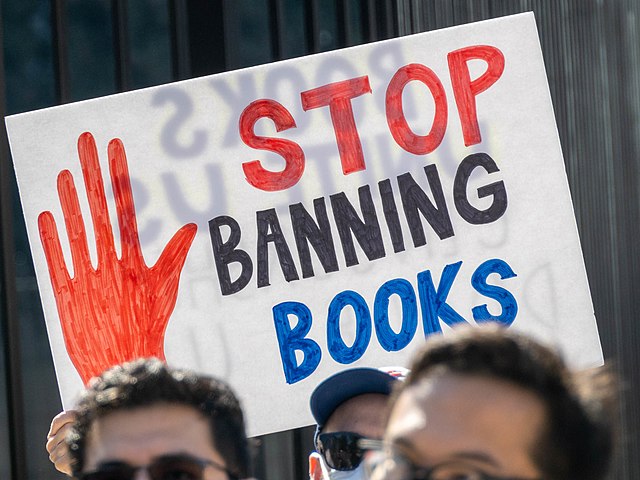Book banning has reached a record-breaking high as the American Library Association reports 695 attempts to ban 1,915 unique titles, more than what was reported in the same period last year.
The American Library Association (ALA) is a nonprofit organization that promotes libraries and library education internationally. The ALA said, “Most of the challenges were to books written by or about a person of color or a member of the LGBTQIA plus community.” The association has reported that, so far, in 2023; 695 attempts have been made to ban books in public libraries, which is up from last year’s 681.
Sharon Estes, an English professor at Bucks Community College, says that the staggering number of book bans in 2022-2023 is alarming. “I find particularly troubling the bans that target the books that include characters or themes from marginalized groups including topics like black history.” She says.
The rise in book bans stems from polarization, and in particular the erosion of trust, among a small vocal minority and our social institutions and resources. Largely, what we are seeing seems to be individuals or small groups of people targeting local libraries and schools, and even teacher’s personal classroom libraries.
Professor Estes continued to say “Historically the good guys aren’t the ones burning the books.” Often the people advocating for these bans haven’t read the titles they are seeking to remove but are submitting lists of titles that they find aligning with specific themes. It is vital that people have the opportunity to both learn about the experiences of those different from themselves and also see themselves reflected in literature. Children in state school districts and classrooms with bare shelves will lose those opportunities to build empathy and understanding.
Public schools and libraries are dedicated to the principles of access to information and education for everyone and book challenges undermine these vital resources in our communities.
However, Professor Estes also doesn’t deny that there can be valid reasons to ban a book stating “I think valid reasons for true banns are extremely limited and contextualized and honestly anyone with a smartphone can locate even truly banned books with ease”
She notes that instructions on building homemade bombs come to mind for this and instead of focusing on banning books we should be educating good readers and engaging in conversations around difficult texts in an appropriate context.
Some of the most shocking titles on the book ban list for Professor Estes were “The Diary of Anne Frank” By Anne Frank Co-written by Otto Frank, “Letter from Birmingham Jail” By Martin Luther King Jr., and “To Kill a Mockingbird” By Harper Lee.
“For someone challenging a list of books with themes they disagree with, they may feel that they are protecting children, however banning books that are widely used as classroom texts disempowers teachers and librarians and takes away the opportunity for young readers to encounter such things in a supportive context.” She says.
She brings up “The Outsiders” by S.E Hilton and its depiction of gang culture and how we can ban the book but that doesn’t mean students won’t know that gangs exist. Young people today are well known to be tech-savvy when it comes to accessing information, anybody with a smartphone or Internet access can find materials that may be banned from individual libraries.
Professor Estes says, “Honestly for many teenagers, there’s nothing like a band for making them curious about what’s off limits.” Most affected by these bans will be young children or students without support at home and “one of the quickest ways to demoralize good teachers and librarians is to remove books and signal that they can’t be trusted to fill their shelves.”
Libraries are already divided according to materials aimed at readers of different ages and school libraries should indeed steer their readers to materials that are appropriate for their age and levels. But the book challenges we are seeing don’t seem to be prioritizing that.


